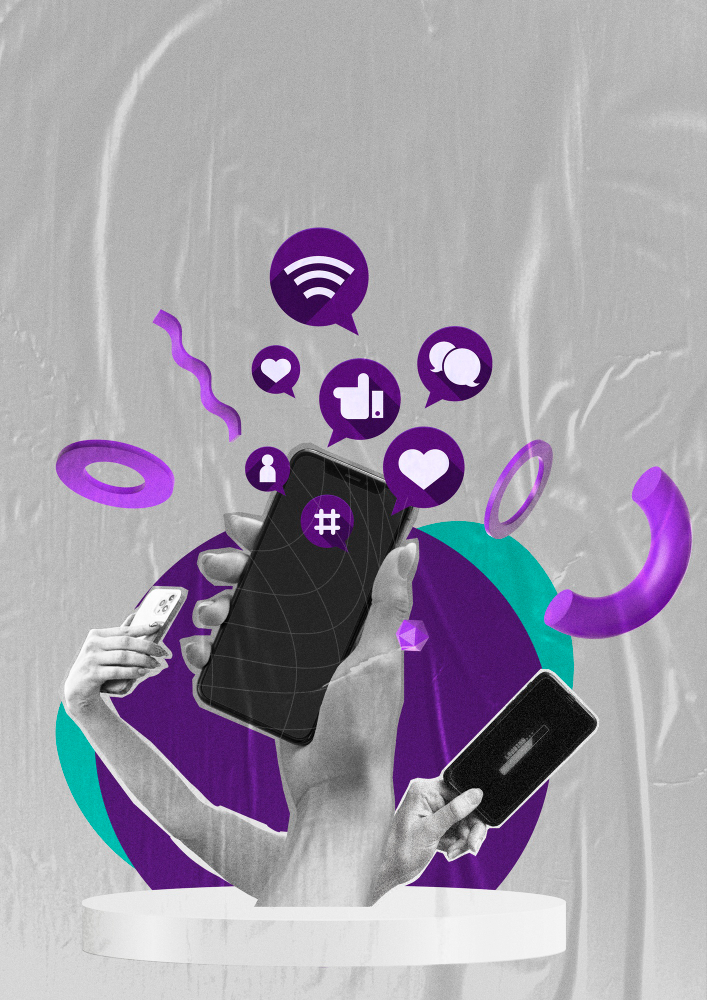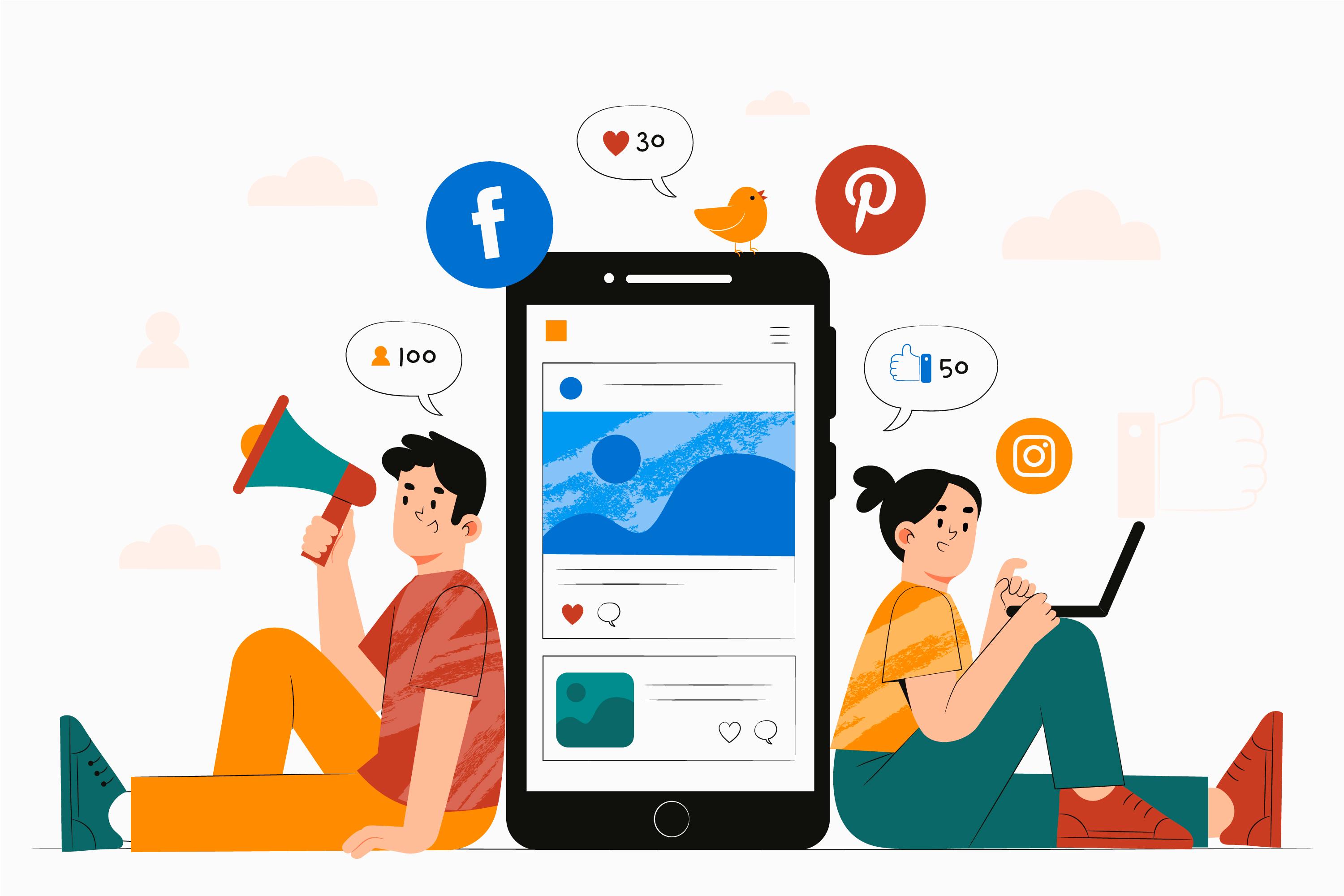How AI Tools Are Reshaping the Role of Social Media Managers in 2025?

Strong 8k brings an ultra-HD IPTV experience to your living room and your pocket.
It’s 2025 and AI isn’t just a part of marketing, rather it’s at the core of it. From chatbots and automated captions to predictive scheduling and content creation, AI has rapidly transformed how we approach digital communication. But, while AI is becoming more powerful, it hasn’t made human role in marketing obsolete. In fact, it has redefined and elevated it.
One role that has changed dramatically is the social media manager. What was once a role focused primarily on posting and community monitoring is now a multifaceted, strategic position that blends creativity with technology. And the businesses seeing the best results today are those that hire social media managers who know how to make the most of AI without losing human touch.
So, what does this new era look like? How has AI changed the day-to-day work of social media managers? And why does human expertise still matter so much in a world filled with automation? Let’s break it down.
AI Takes Over Repetitive Tasks
Let’s start with how AI is fantastic at saving time. In 2025, social media managers are using AI to speed up many of the repetitive and time-consuming tasks that once took hours to complete.
For example, with just a few clicks, an AI tool can:
- Suggest fresh content ideas based on current trends
- Generate multiple caption variations for different platforms
- Analyse past performance and predict the best times to post
- Automatically schedule content across platforms
- Resize visuals for Instagram, LinkedIn, Pinterest, and more
- Summarise long-form content for short posts or tweets
This kind of automation frees up valuable time. A manager who once spent an entire afternoon drafting and scheduling a month’s worth of posts can now do it in less than half the time with the help of AI.
But this is just the beginning. AI can handle the how but not always the why.
Humans Bring the Strategy and Soul
Though AI may have advanced, it still lacks something critical: emotional intelligence, brand nuance, and strategic thinking. This is where human social media managers come in and why their role is more important than ever.
Social media isn’t just about pushing content. It’s about building trust, creating emotional connections, and being responsive in real time. AI tools can’t:
- Write in a way that consistently reflects your unique brand voice
- Navigate sensitive issues or manage public backlash
- Understand sarcasm, cultural context, or subtext
- Engage in genuine conversations with followers
- Use intuition to predict what tone or style will resonate most
Imagine a customer leaves a negative comment on your brand’s Instagram post. Would you trust an AI tool to respond with the right tone and empathy? Probably not. But a skilled social media manager can assess the situation and craft a reply that turns criticism into a connection.
This human side of brand communication is exactly why smart businesses continue to hire social media managers even as they invest in AI.
From Creator to Strategist
The role of the social media manager has evolved due to automation. Today, it’s not just about writing captions and choosing filters, it’s about leading the digital brand voice. With AI taking care of basic tasks, social media managers can now focus on:
- Building content strategies that align with business goals
- Defining and protecting the brand’s tone across platforms
- Coordinating with designers, writers, and ad teams
- Launching campaigns with measurable KPIs
- Analysing engagement trends and adjusting tactics accordingly
Let’s take an example: a sustainable fashion brand wants to promote its new summer line. The AI tool can help by generating caption drafts, identifying the best posting times, and suggesting relevant hashtags. But the manager steps in to:
- Craft a compelling narrative that connects the brand’s mission with the product
- Choose influencer partners that genuinely align with brand values
- Plan a multi-platform campaign that builds excitement and drives conversions
- Tailor messaging differently for Gen Z on TikTok vs professionals on LinkedIn
- This level of storytelling and strategic integration is something AI still cannot replicate.
AI Delivers Data while Managers Deliver Insight
Another major benefit of AI is analytics. AI tools can process vast amounts of data in seconds, identifying trends in reach, engagement, follower behaviour, and even emotional reactions to content.
But raw data isn’t the full picture. It takes human insight to interpret what the data actually means and decide what to do next.
For example, AI shows that a brand’s carousel posts consistently underperform. A social media manager might dig deeper and discover:
- The posts are too text-heavy for Instagram users
- The visual style doesn’t match current platform trends
- The content is being posted at the wrong time for their audience segment
Armed with this insight, they can test different formats, experiment with visual storytelling, or shift the content calendar. The result? Improved performance rooted in strategic decision-making, not just surface-level numbers.
This blend of AI precision and human intuition is the secret to long-term success and another reason to hire social media manager professionals who can bridge both worlds.
Creativity Can’t Be Automated
At the heart of social media lies storytelling. The posts that truly resonate are the ones that users save, share, or comment on. Those are rarely written by bots. They are created by humans who understand how to stir emotions, spark conversation, and reflect culture.
AI can help brainstorm or summarise, but it can’t:
- Share your founder’s journey in an authentic way
- Create humorous content that lands well across diverse cultures
- Respond creatively to internet trends or memes in real-time
- Write a heartfelt caption that moves people to act
For example, during a mental health awareness week, a skincare brand might want to post something sensitive yet supportive. An AI might generate a generic post like “Take care of your skin and your mind.” A social media manager, however, will create something more meaningful, perhaps sharing a customer’s real story, using inclusive language, and adding thoughtful resources.
This is the difference between content that exists and content that connects.
Conclusion
In the digital age of 2025, AI has become a powerful ally for social media managers but not a replacement. It enables them to work smarter, faster, and with more data. But the heart of impactful social media still lies in human creativity, empathy, strategy, and communication.
The most successful brands are those that use AI to enhance their workflow while keeping real people in charge of the voice, direction, and emotional depth of their content. That’s why the demand to hire social media managers has never been higher and they’re the bridge between automation and authenticity.
So, if your brand wants to thrive in this AI-enhanced landscape, don’t just rely on tools. Invest in people who know how to use them wisely. Because in the end, great content may start with technology, but it always ends with trust.
Note: IndiBlogHub features both user-submitted and editorial content. We do not verify third-party contributions. Read our Disclaimer and Privacy Policyfor details.







